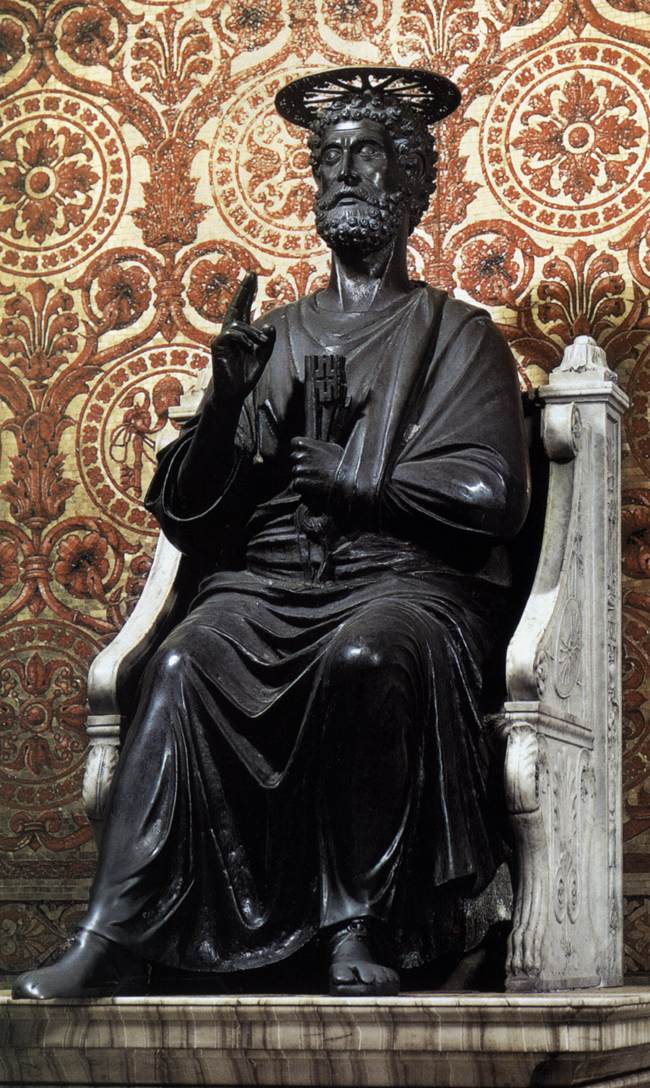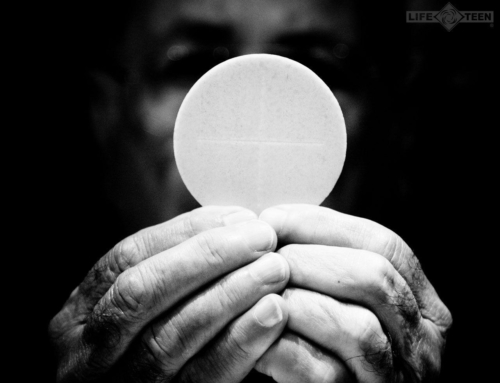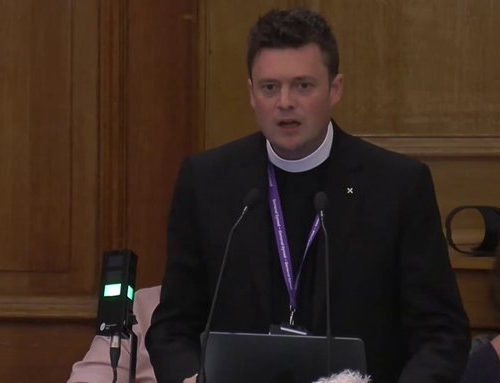There is an essay this week by a fellow called Mike Lewis at a website called Where Peter Is which states that there are two kinds of Catholics now–“ecclesial” and “fundamentalist”
I have had a little rant already over here about the use of the term “fundamentalist”. It was coined in the early 20th c. by conservative Protestants who, in the face of modernism, wished to return to the fundamentals of the faith.
Now, of course, it is a dirty word–associated with racism and terrorism, the Ku Klux Klan and jihadis who behead little children in public.
For Mike Lewis to use the term “fundamentalist” is pejorative and inflammatory. It is imprecise, insulting and only adds fuel to the fire. It is just as unhelpful as the conservatives who sling the term heretic at their opponents. At least the term “heretic” might, in some cases, be objectively correct. “Fundamentalist” has nothing to do with conservative Catholics. The term was coined by Biblical literalists.
To be fair, there are some conservative Catholics on the lunatic fringe who could properly be termed “fundamentalist”. I’ve engaged with some traditionalists who really are racist, anti-semitic, ultra right wing, geo centrist conspiracy theory nut jobs. Likewise, we have all encountered some progressive Catholics who are way out in left field. God bless and preserve them all.
It doesn’t aid rational discourse however, to call each other names.
But to the content of Lewis’ essay: His basic claim is that “ecclesial” Catholics think with the church. They are with Peter. They trust the teaching authority of the church, and if change is introduced they go along trusting the Holy Spirit with a calm confidence. “Fundamentalist” Catholics, on the other hand, are unable to do this. They are bound to their understanding of the traditions of the church and cannot and will not budge. They are “sola traditio” Catholics.
This caricature of the situation is so shallow and uninformed that it is embarrassing. Undoubtedly there are divisions in the Catholic Church, but the causes of those divisions are far more profound than “we go along with whatever the pope says” and “We don’t like change. We don’t like this pope.”
I’m sure there are some Pollyanna Ultramontanists who trip along happily and there are surely some Catholic Curmudgeons who grumble into their missals at every change that comes along. In fact most Catholics who think things through at all realize that the church is both unchanging and changing at the same time. Like a waterfall, it is always the same and always different.
Happily a famous convert to the faith (was he sometimes a little neurotic?) named Bl. John Henry Newman outlined the criteria for judging what changes in the church are valid and what are not.
Those who would like to read his Essay on the Development of Doctrine will find the whole thing here.
Newman sets out seven criteria to test whether a change is authentic development or a mistake.
Put very simply, authentic development of doctrine must not only be in continuity with the past, but there must also be a natural growth which is consistent with the past and not contradictory. What seems to be an innovation must be a logical outgrowth of the original kernel of truth. Furthermore, the “new” truth must be seen to be already existent in seed form in the primitive teaching and the “new” truth must be a consolidation not a destruction of the “old” truth. Finally, Newman says there must be “chronic vigor” in the developing doctrine — in other words it presents itself as a vibrant and dynamic outgrowth of the old truth — not a lessening or diminution of that truth.
Of course, some would say that Amoris Letitia is not doctrine at all–it is a pastoral document, so applying Newman’s test is irrelevant. However, as many have pointed out, pastoral practice, doctrine and moral teachings cannot contradict one another. To do so would be absurd. Newman’s test must be applicable to pastoral practice as well as doctrine.
Mike Lewis contends that those Catholics who have questions about Amoris Letitia are fundamentalists who can’t and won’t accept Holy Spirit directed change.
This is simply untrue. Those who have valid and authentic questions about current innovations wish to test those innovations against the criteria established so brilliantly by one of the church’s great theologians – Cardinal Newman.
They believe the footnote in chapter eight introduces an innovation which would be to allow Catholics who are in an objectively sinful situation to receive holy communion. If this is what the footnote means, then they wish to test this innovation against Newman’s criteria. To do so becomes immediately obvious to the most elementary theological thinker that such an innovation does not, in fact, comply with any of Newman’s seven standards.
If, however, this is not what the footnote means (and it is open to various interpretations) then they are right to request clarification. That the top man has not clarified the situation causes them some disquiet for some very good reasons that they have outlined.
It is true that some of those who disagree use inflammatory language of heresy, the great apostasy and other apocalyptic terminology. Others admit that change may happen but rightly insist that the change should be valid and authentic. These men and women are theologians, prelates, bishops and cardinals.
They are not all rabid fundamentalists, and it is silly and irresponsible to name them such.







[…] This article by a guy called Mike Lewis, states that Catholics who disagree with Amoris Letitia and wish Pope Francis would answer the cardinals’ four questions are also fundamentalists. They hold to a “sola traditio” form of Catholicism and do not trust the pope and the Holy Spirit to guide the church. I have commented further on Mike’s article here. […]
Thank you so very much for putting sharp edges to what I found to be a very disquieting article by Mike Lewis. It was name calling and labeling in Christian guise.The Site was new to me. The credentials sounded well founded, but the content imparted disquiet.
I shall not return to that site.
Again, my gratitude to you and Bl. John Henry Newman!!
Spot on Fr. Longenecker!!!
[…] who relies on a “plain reading” of religious texts as their highest doctrinal authority. Fr. Dwight Longenecker was highly offended by my use of the word. He dedicated the first ⅓ of his blog post attempting […]
[…] Is there such creature as the Catholic fundamentalist? Responding to fellow WPI blogger Mike Lewis’s use of the term “fundamentalist” in Fundamentalist Catholics and Ecclesial Catholics, Fr Dwight Longnecker writes: […]
[…] Why I Don’t Favor ‘Strict’ Laws Banning Abortion or Dog-Fighting – John Zmirak Ph.D. Are Conservative Catholics Fundamentalists? – Fr. Dwight Longenecker Obianuju Ekoecha: Do Western Leftists Want Africans Dead? – […]